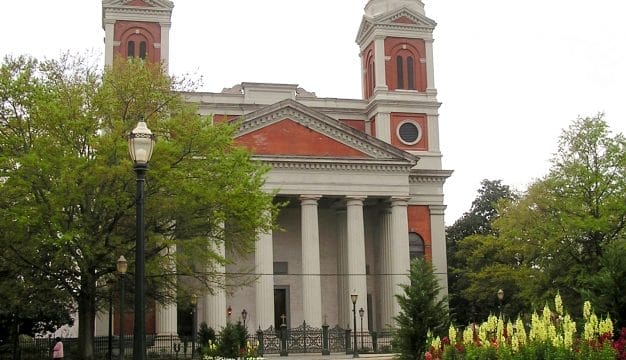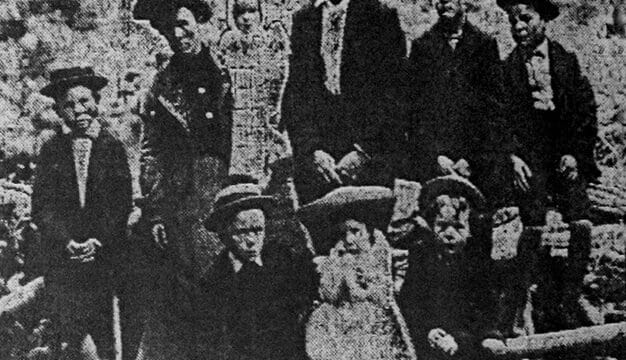Poets Laureate of Alabama
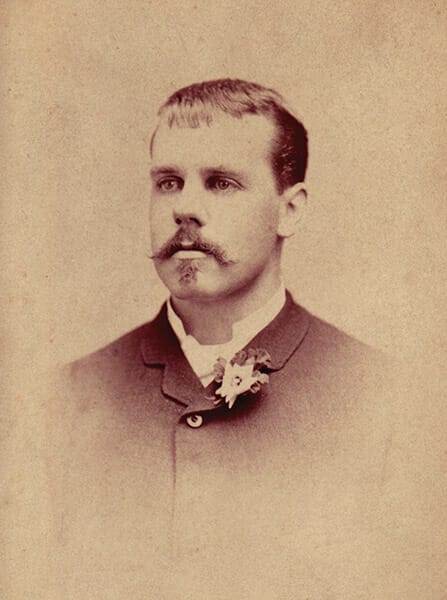 Samuel Peck
The title of poet laureate of Alabama was created in 1930. Nominated by the Alabama Writers’ Conclave (AWC) and commissioned by the governor, the poet laureate of Alabama plays a prominent public role, making appearances at schools, libraries, colleges and universities, and other state institutions. The role traditionally involves reading poems and offering lectures and workshops on poetry to audiences ranging from circles of school children to gala events with hundreds of guests to media broadcasts that reach thousands of people. It is a role that has changed with the times and with technology, but at least one constant has remained: Alabama’s poet laureate serves as the public face of poetry for the state. During the past few decades, poetry’s place in society has been hotly debated in and out of academic circles, and the place of an office such as poet laureate has been similarly scrutinized on state and national levels.
Samuel Peck
The title of poet laureate of Alabama was created in 1930. Nominated by the Alabama Writers’ Conclave (AWC) and commissioned by the governor, the poet laureate of Alabama plays a prominent public role, making appearances at schools, libraries, colleges and universities, and other state institutions. The role traditionally involves reading poems and offering lectures and workshops on poetry to audiences ranging from circles of school children to gala events with hundreds of guests to media broadcasts that reach thousands of people. It is a role that has changed with the times and with technology, but at least one constant has remained: Alabama’s poet laureate serves as the public face of poetry for the state. During the past few decades, poetry’s place in society has been hotly debated in and out of academic circles, and the place of an office such as poet laureate has been similarly scrutinized on state and national levels.
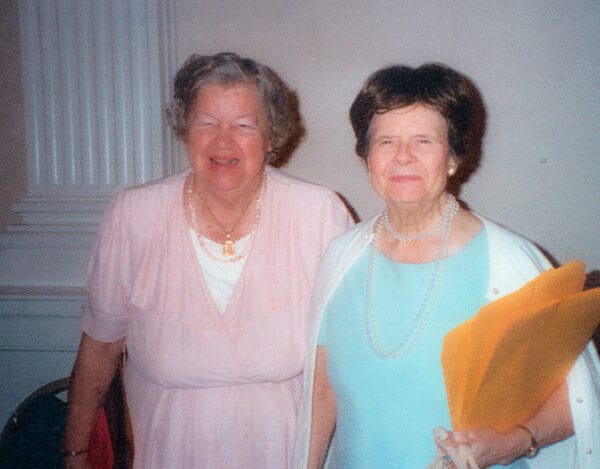 Helen Blackshear and Helen Norris
Following a tradition dating back to ancient Greece and formally established in Britain during the seventeenth century, Alabama established its own poet laureate by an act of the 1931 state legislature, an unpaid position from the start closely associated with the Alabama Writers’ Conclave. The poet laureate historically served a monarch, writing poems to mark significant moments in the lives of the royal family and other prominent citizens or in the life of the nation. For instance, “The Charge of the Light Brigade,” perhaps the best-known poem by Alfred, Lord Tennyson (British poet laureate from 1850 until 1892), commemorates the valor of British cavalry during a battle in the Crimean War. The U.S. Poet Laureate, known until recently as the Poetry Consultant to the Library of Congress, has often sought to increase the profile of poetry as a public art form. For example, Robert Pinsky, poet laureate of the United States from 1997 to 2000, created the “Favorite Poem Project,” which celebrates the place of poetry in American life through various activities and publications.
Helen Blackshear and Helen Norris
Following a tradition dating back to ancient Greece and formally established in Britain during the seventeenth century, Alabama established its own poet laureate by an act of the 1931 state legislature, an unpaid position from the start closely associated with the Alabama Writers’ Conclave. The poet laureate historically served a monarch, writing poems to mark significant moments in the lives of the royal family and other prominent citizens or in the life of the nation. For instance, “The Charge of the Light Brigade,” perhaps the best-known poem by Alfred, Lord Tennyson (British poet laureate from 1850 until 1892), commemorates the valor of British cavalry during a battle in the Crimean War. The U.S. Poet Laureate, known until recently as the Poetry Consultant to the Library of Congress, has often sought to increase the profile of poetry as a public art form. For example, Robert Pinsky, poet laureate of the United States from 1997 to 2000, created the “Favorite Poem Project,” which celebrates the place of poetry in American life through various activities and publications.
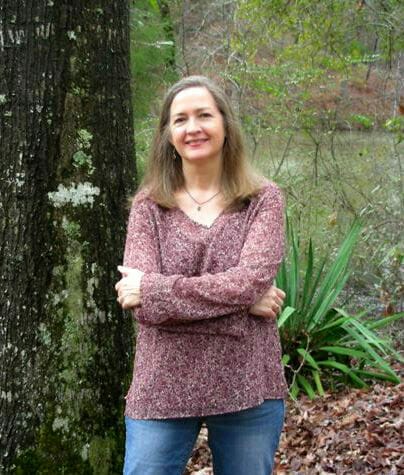 Jennifer Horne
Alabama’s poets laureate have varied in terms of their style, manner of public service, and length of term but all have been commissioned by the governor upon nomination by the AWC. Established in 1923, the organization is the oldest continuously operating writers’ collective in the nation. Its members include fiction and non-fiction writers, poets, science and business writers, freelance journalists, publishers, philanthropists, and teachers from Alabama or with some connection to the state. The AWC-established guidelines for Alabama poet laureate require state residence of at least 15 years for all nominees and, after 1983, a term limit of four years.
Jennifer Horne
Alabama’s poets laureate have varied in terms of their style, manner of public service, and length of term but all have been commissioned by the governor upon nomination by the AWC. Established in 1923, the organization is the oldest continuously operating writers’ collective in the nation. Its members include fiction and non-fiction writers, poets, science and business writers, freelance journalists, publishers, philanthropists, and teachers from Alabama or with some connection to the state. The AWC-established guidelines for Alabama poet laureate require state residence of at least 15 years for all nominees and, after 1983, a term limit of four years.
The Poets Laureate
Samuel Minturn Peck (1854-1938), Alabama’s first poet laureate, assumed the office on June 12, 1930, but was not confirmed by the legislature until March 5, 1931. He served until his death in 1938. A native of Tuscaloosa, Tuscaloosa County, Peck authored a number of poetry collections, including The Autumn Trail; Maybloom and Myrtle; Alabama Sketches; Fair Women of Today; Rhymes and Roses; and Cap and Bells.
Mary B. Ward (1898-1985), a native of Selma, Dallas County, was a prolific writer. She published variously under the pen names Linn Latham, Amy Atchison, and Jack Ordway, among others, and was editor of the literary magazine Gammadion, a contributing editor for Yankee Humor and Poetry Forum, and a features writer for The Birmingham News. Ward was a president of the Alabama Writers’ Conclave and an early proponent of establishing the position of poet laureate. She served as poet laureate from 1954 to 1958.
Elbert Calvin Henderson (1903-1974) authored several poetry collections, including The Ultimate Harvest; Eternal Symphony; Blame Noah; Bright Armor; and House of Paradoxes. He was born in Glenwood, Crenshaw County, and served as poet laureate from 1959 until his death in 1974.
William Young Elliott (1902-1997) is a native of Leeds, Jefferson County. His published collections include Skylights 1, 2, and 3; Wings; Voices; Sisu and His Children; and Lizzie, Love Letters of a Young Confederate Soldier. Elliot served as poet laureate from 1975 to 1982 and died in Huntsville.
Carl Patrick Morton (1920-1994) was born in Leeds, Jefferson County. He headed a number of state and national literary organizations, including the Alabama Writers’ Conclave and the Alabama State Poetry Society, and he authored Desiring Stone and An Occasional Tyger and co-authored Scrod I. He served as poet laureate from 1983 to 1987.
Morton Dennison Prouty Jr. (1918-1991) was a president of the Alabama State Poetry Society and served as editor of its annual journal, The Sampler. He published a number of poetry collections, including The Heavens Are Telling; To a Young Mariner; The Pharisee; and Sparks on the Wind. Though born in Illinois, Prouty spent most of his adult life in Florence, Lauderdale County. He served as poet laureate from 1988 to 1991.
Ralph Hammond (1916-2010) was a widely-respected author and editor and served as Gov. James E. Folsom Sr.’s press secretary and as the state’s publicity director in addition to being mayor of Arab, Marshall County. He was president of both the Alabama State Poetry Society and the Alabama Writers’ Conclave and of the National Federation of Poetry Societies. Hammond published more than a dozen volumes, including Crossing Many Rivers; Upper Alabama Poems Out of Light; Blossoms; and Alabama Poets: A Contemporary Anthology. He was born in Big Wills Valley, Etowah County, and served as poet laureate from 1992 to 1995.
Helen Friedman Blackshear (1911-2003), a Tuscaloosa native, worked with a number of state and local literary organizations, including the Alabama Writers’ Conclave and the Alabama State Poetry Society, and published widely in several genres, including the poetry collections And Time Remembered, Selections and Earthbound. She taught secondary-school English in Montgomery, Montgomery County, for 35 years. Blackshear served as poet laureate from 1995 to 1999.
Helen Norris (1916-2013) was from Montgomery, Montgomery County. She authored of four novels, four short-story collections, and two poetry books and was the recipient of four O. Henry Awards, a Pushcart Prize, and two Andrew Lytle Awards, among many other honors. Two of her works, Cracker Man and The Christmas Wife, were made into films for television. She taught at Huntingdon College in Montgomery for more than a decade before committing full-time to writing. Norris served as poet laureate from 1999 to 2003.
Sue Brannan Walker (ca. 1940- ) is the editor and publisher of Negative Capability. A highly regarded teacher and literary scholar, Walker is the author of five poetry collections, including the widely praised Blood Will Bear Your Name. She is a faculty member at the University of South Alabama, in Mobile, Mobile County, where she has served as chair of the department of English and has published in a variety of fields of literary scholarship. Her second term as poet laureate ended in 2012.
Andrew Glaze (1920-2016) was raised in Birmingham and worked as a journalist for the Birmingham Post-Herald. He wrote eight books of poetry that largely center on the human condition, with his collection Damned Ugly Children being the most notable. Many of his best poems draw on his early life in Alabama. Glaze began his term in 2013.
Jennifer Horne is an educator, poet, and freelance writer who was raised in Arkansas. She has taught at the University of Alabama since 1986. Her publications include two poetry chapbooks and a collection, Bottle Tree, as well as a collection of short stories. She has also served as editor and coeditor on collections of poetry and essays on southern themes. She was named poet laureate in 2017, serving from 2018-22.
Ashley M. Jones (1990- ) is a native of Birmingham, and her poems, which explore her experiences with race in the city and in the wider nation, have been published in numerous prestigious journals and anthologies. She is currently on the creative writing faculty of the Alabama School of Fine Arts. In August 2021, she was named poet laureate for the 2022-26 term and is the first African American appointed to the position.
Additional Resources
Blackshear, Helen F., ed. These I Would Keep: Selected Poems by the Poet Laureates of Alabama. Montgomery, Ala.: NewSouth Books, 2000.
Hammond, Ralph, ed. Alabama Poets: A Contemporary Anthology. Livingston, Ala.: Livingston University Press, 1990.
